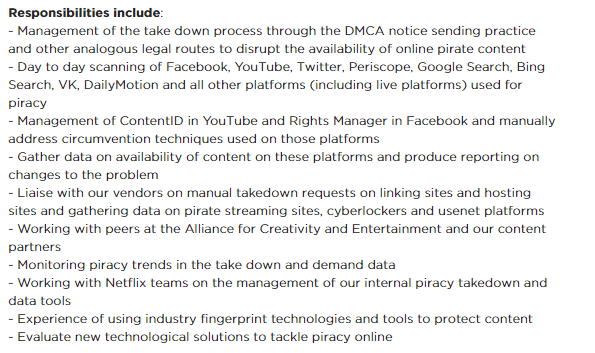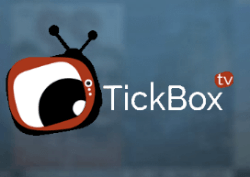 Dutch anti-piracy group BREIN is probably best known for its legal action against The Pirate Bay but the outfit also tackles many other forms of piracy.
Dutch anti-piracy group BREIN is probably best known for its legal action against The Pirate Bay but the outfit also tackles many other forms of piracy.
A prime example is the case it pursued against a seller of fully-loaded Kodi boxes in the Netherlands. The subsequent landmark ruling from the European Court of Justice will reverberate around Europe for years to come.
Behind the scenes, however, BREIN persistently tries to take much smaller operations offline, and not without success. Earlier this year it revealed it had taken down 231 illegal sites and services includes 84 linking sites, 63 streaming portals, and 34 torrent sites. Some of these shut down completely and others were forced to leave their hosting providers.
Much of this work flies under the radar but some current action, against an eBook site, is now being thrust into the public eye.
For more than five years, EBoek.info (eBook) has serviced Internet users looking to obtain comic books in Dutch. The site informs TorrentFreak it provides a legitimate service, targeted at people who have purchased a hard copy but also want their comics in digital format.
“EBoek.info is a site about comic books in the Dutch language. Besides some general information about the books, people who have legally obtained a hard copy of the books can find a link to an NZB file which enables them to download a digital version of the books they already have,” site representative ‘Zala’ says.
For those out of the loop, NZB files are a bit like Usenet’s version of .torrent files. They contain no copyrighted content themselves but do provide software clients with information on where to find specific content, so it can be downloaded to a user’s machine.
“BREIN claims that this is illegal as it is impossible for us to verify if our visitor is telling the truth [about having purchased a copy],” Zala reveals.
Speaking with TorrentFreak, BREIN chief Tim Kuik says there’s no question that offering downloads like this is illegal.
“It is plain and simple: the site makes links to unauthorized digital copies available to the general public and therefore is infringing copyright. It is distribution of the content without authorization of the rights holder,” Kuik says.
“The unauthorized copies are not private copies. The private copy exception does not apply to this kind of distribution. The private copy has not been made by the owner of the book himself for his own use. Someone else made the digital copy and is making it available to anyone who wants to download it provided he makes the unverified claim that he has a legal copy. This harms the normal exploitation of the
content.”
Zala says that BREIN has been trying to take his site offline for many years but more recently, the platform has utilized the services of Cloudflare, partly as a form of shield. As readers may be aware, a site behind Cloudflare has its originating IP addresses hidden from the public, not to mention BREIN, who values that kind of information. According to the operator, however, BREIN managed to obtain the information from the CDN provider.
“BREIN has tried for years to take our site offline. Recently, however, Cloudflare was so friendly to give them our IP address,” Zala notes.
A text copy of an email reportedly sent by BREIN to EBoek’s web host and seen by TF appears to confirm that Cloudflare handed over the information as suggested. Among other things, the email has BREIN informing the host that “The IP we got back from Cloudflare is XXX.XXX.XX.33.”
This means that BREIN was able to place direct pressure on EBoek.info’s web host, so only time will tell if that bears any fruit for the anti-piracy group. In the meantime, however, EBoek has decided to go public over its battle with BREIN.
“We have received a request from Stichting BREIN via our hosting provider to take EBoek.info offline,” the site informed its users yesterday.
Interestingly, it also appears that BREIN doesn’t appreciate that the operators of EBoek have failed to make their identities publicly known on their platform.
“The site operates anonymously which also is unlawful. Consumer protection requires that the owner/operator of a site identifies himself,” Kuik says.
According to EBoek, the anti-piracy outfit told the site’s web host that as a “commercial online service”, EBoek is required under EU law to display its “correct and complete business information” including names, addresses, and other information. But perhaps unsurprisingly, the site doesn’t want to play ball.
“In my opinion, you are confusing us with Facebook. They are a foreign commercial company with a European branch in Ireland, and therefore are subject to Irish legislation,” Zala says in an open letter to BREIN.
“Eboek.info, on the other hand, is a foreign hobby club with no commercial purpose, whose administrators have no connection with any country in the European Union. As administrators, we follow the laws of our country of residence which do not oblige us to disclose our identity through our website.
“The fact that Eboek is visible in the Netherlands does not just mean that we are going to adapt to Dutch rules, just as we don’t adapt the site to the rules of Saudi Arabia or China or wherever we are available.”
In a further snub to the anti-piracy group, EBoek says that all visitors to the site have to communicate with its operators via its guestbook, which is publicly visible.
“We see no reason to make an exception for Stichting BREIN,” the site notes.
What makes the situation more complex is that EBoek isn’t refusing dialog completely. The site says it doesn’t want to talk to BREIN but will speak to BREIN’s customers – the publishers of the comic books in question – noting that to date no complaints from publishers have ever been received.
While the parties argue about lines of communication, BREIN insists that following this year’s European Court of Justice decision in the GS Media case, a link to a known infringing work represents copyright infringement. In this case, an NZB file – which links to a location on Usenet – would generally fit the bill.
But despite focusing on the Dutch market, the operators of EBoek say the ruling doesn’t apply to them as they’re outside of the ECJ’s jurisdiction and aren’t commercially motivated. Refusing point blank to take their site offline, EBoek’s operators say that BREIN can do its worst, nothing will have much effect.
“[W]hat’s the worst thing that can happen? That our web host hands [BREIN] our address and IP data. In that case, it will turn out that…we are actually far away,” Zala says.
“[In the case the site goes offline], we’ll just put a backup on another server and, in this case, won’t make use of the ‘services’ of Cloudflare, the provider that apparently put BREIN on the right track.”
The question of jurisdiction is indeed an interesting one, particularly given BREIN’s focus in the Netherlands. But Kuik is clear – it is the area where the content is made available that matters.
“The law of the country where the content is made available applies. In this case the EU and amongst others the Netherlands,” Kuik concludes.
To be continued…..
Source: TF, for the latest info on copyright, file-sharing, torrent sites and ANONYMOUS VPN services.

 There is little doubt that, in the United States and many other countries, Netflix has become the standard for watching movies on the Internet.
There is little doubt that, in the United States and many other countries, Netflix has become the standard for watching movies on the Internet.

 Online streaming piracy is booming and many people use dedicated media players to bring this content to their regular TVs.
Online streaming piracy is booming and many people use dedicated media players to bring this content to their regular TVs.


 While domain seizures against pirate sites are relatively common in the United states, ISP and search engine blocking is not. This could change soon though.
While domain seizures against pirate sites are relatively common in the United states, ISP and search engine blocking is not. This could change soon though.